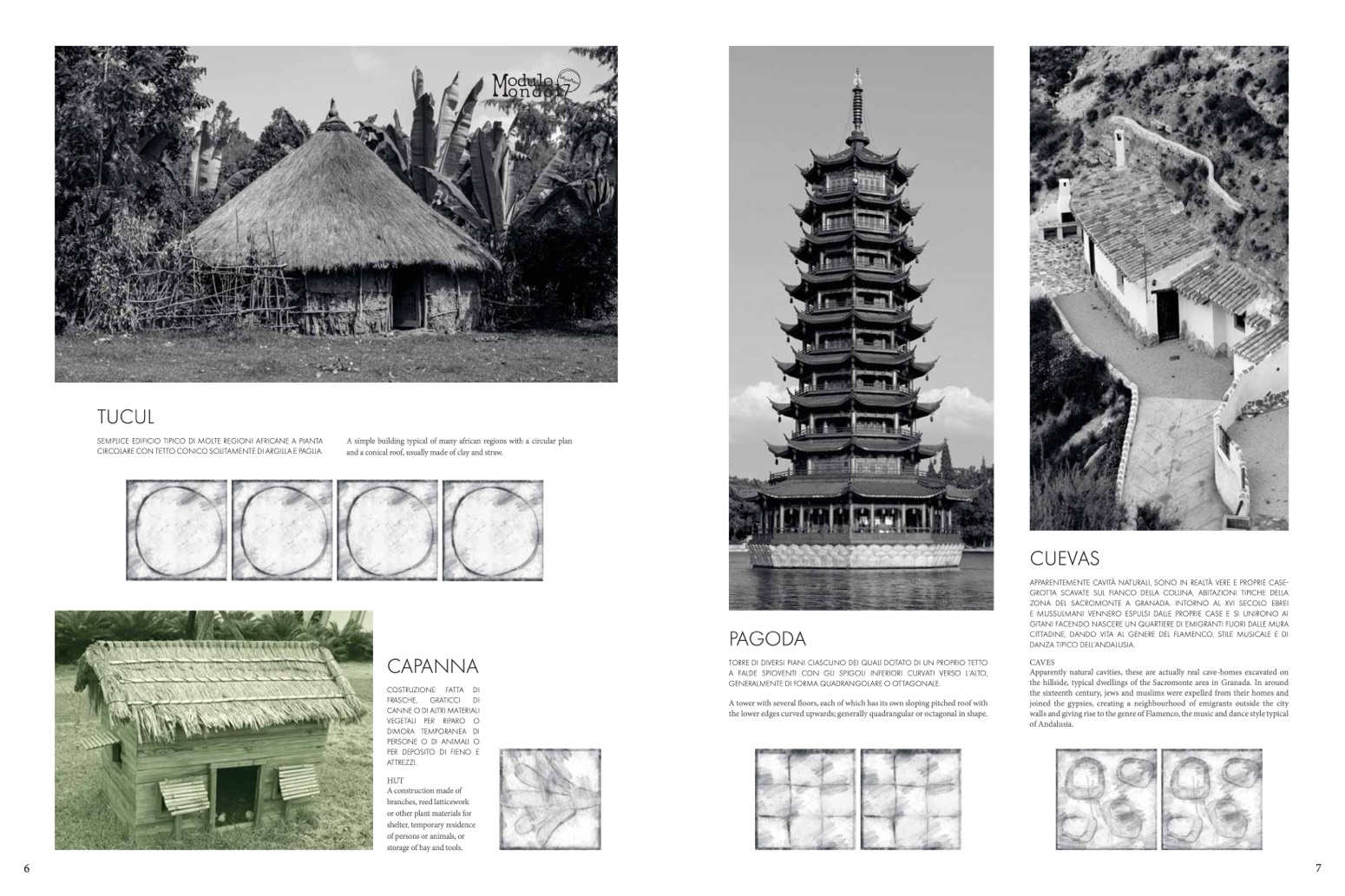
TUCUL
SEMPLICE EDIFICIO TIPICO DI MOLTE REGIONI AFRICANE A PIANTA
CIRCOLARE CON TETTO CONICO SOLITAMENTE DI ARGILLA E PAGLIA.
A simple building typical of many african regions with a circular plan
and a conical roof, usually made of clay and straw.
CAPANNA
COSTRUZIONE FATTA DI
FRASCHE,
GRATICCI
DI
CANNE O DI ALTRI MATERIALI
VEGETALI PER RIPARO O
DIMORA TEMPORANEA DI
PERSONE O DI ANIMALI O
PER DEPOSITO DI FIENO E
ATTREZZI.
HUT
A construction made of
branches, reed latticework
or other plant materials for
shelter, temporary residence
of persons or animals, or
storage of hay and tools.
PAGODA
TORRE DI DIVERSI PIANI CIASCUNO DEI QUALI DOTATO DI UN PROPRIO TETTO
A FALDE SPIOVENTI CON GLI SPIGOLI INFERIORI CURVATI VERSO L’ALTO,
GENERALMENTE DI FORMA QUADRANGOLARE O OTTAGONALE.
A tower with several floors, each of which has its own sloping pitched roof with
the lower edges curved upwards; generally quadrangular or octagonal in shape.
CUEVAS
APPARENTEMENTE CAVITÀ NATURALI, SONO IN REALTÀ VERE E PROPRIE CASE
GROTTA SCAVATE SUL FIANCO DELLA COLLINA, ABITAZIONI TIPICHE DELLA
ZONA DEL SACROMONTE A GRANADA. INTORNO AL XVI SECOLO EBREI
E MUSSULMANI VENNERO ESPULSI DALLE PROPRIE CASE E SI UNIRONO AI
GITANI FACENDO NASCERE UN QUARTIERE DI EMIGRANTI FUORI DALLE MURA
CITTADINE, DANDO VITA AL GENERE DEL FLAMENCO, STILE MUSICALE E DI
DANZA TIPICO DELL’ANDALUSIA.
CAVES
Apparently natural cavities, these are actually real cave-homes excavated on
the hillside, typical dwellings of the Sacromonte area in Granada. In around
the sixteenth century, jews and muslims were expelled from their homes and
joined the gypsies, creating a neighbourhood of emigrants outside the city
walls and giving rise to the genre of Flamenco, the music and dance style typical
of Andalusia.
6
7

